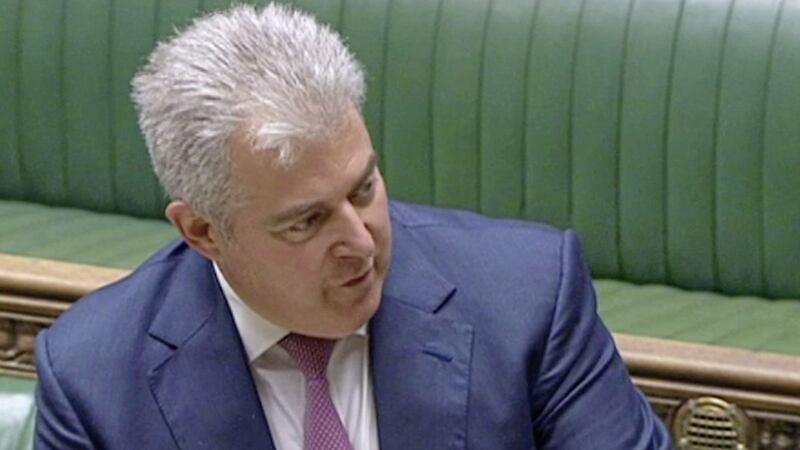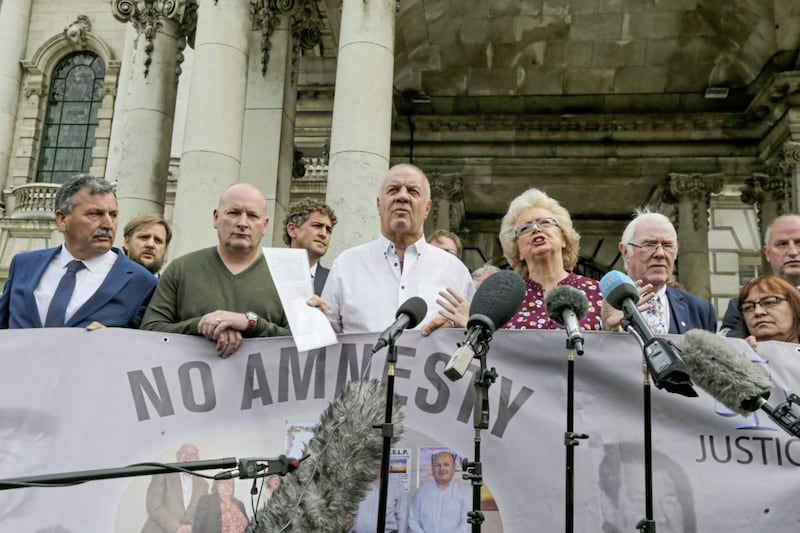BRITISH government proposals for dealing with the past will include a statute of limitations that will "apply equally to all Troubles-related incidents", the secretary of state has confirmed.
Brandon Lewis said the planned legislation, details of which were widely leaked to elements of the press in Britain over recent days, will be introduced to Westminster in the autumn, with officials hoping that it can be enshrined in law by next spring.
The controversial, de facto amnesty for Troubles-related offences committed up to 1998 by both ex-paramilitaries and former members of the security forces has been met with almost universal opposition.
The legacy plan, outlined by the secretary of state yesterday in the House of Commons, also includes a new truth recovery body and an oral history initiative.
If adopted, the legislation will also signal an end to Troubles-related inquests and civil actions stemming from the conflict.
The government's 30-page paper does not address the status of cases currently before the courts. However, the BBC reported that the government wants to explore ways to halt live court proceedings in Troubles-related cases.
Mr Lewis said the proposed statute of limitations, which prevents legal proceedings after a certain period of time, was "in reality a painful recognition of the very reality of where we are".
"We know that the prospect of the end of criminal prosecutions will be difficult for some to accept and this is not a position we take lightly," he said.
"But we've come to the view that this is the best and only way to facilitate an effective information retrieval and provision process, and the best way to help Northern Ireland move further along the road to reconciliation."
The British government's proposed amnesty comes after years of pressure from Tory MPs to end the prosecution of military veterans who served in the north.
The MPs have been unhappy with the high-profile cases brought against former British soldiers involved in Bloody Sunday and the killing of 15-year-old Daniel Hegarty, who was shot twice in the head in Derry in July 1972.
Mr Lewis said continuing with criminal investigations into Troubles offences was "unlikely" to resolve the legacy of the conflict.
"It is increasingly clear and I have been frank with the house in my opening remarks, that any approach to dealing with the legacy of the past that focuses on criminal investigations will be unlikely to deliver the outcomes that people hope for," he told MPs.
"There is a point at which we in this house need to be honest with people about the very painful difficult reality of where we are today."
He said the British government would "never accept any moral equivalence between those that upheld the law in Northern Ireland - those that served their country - and those that sought to destroy it".
Speaking ahead of Mr Lewis's statement, British Prime Minister Boris Johnson described the proposals as "measured" and "balanced".
Responding to criticism from Sir Keir Starmer, he said his government's plans had a "wide degree of support from former Labour prime ministers and former Labour leader".
"The sad fact remains that there are many members of the armed services who continue to face the threat of vexatious prosecutions well into their 70s, 80s and later, and we're finally bringing forward a solution to this problem, to enable the province of Northern Ireland to draw a line under the Troubles, to enable the people of Northern Ireland to move forward," Mr Johnson said.








